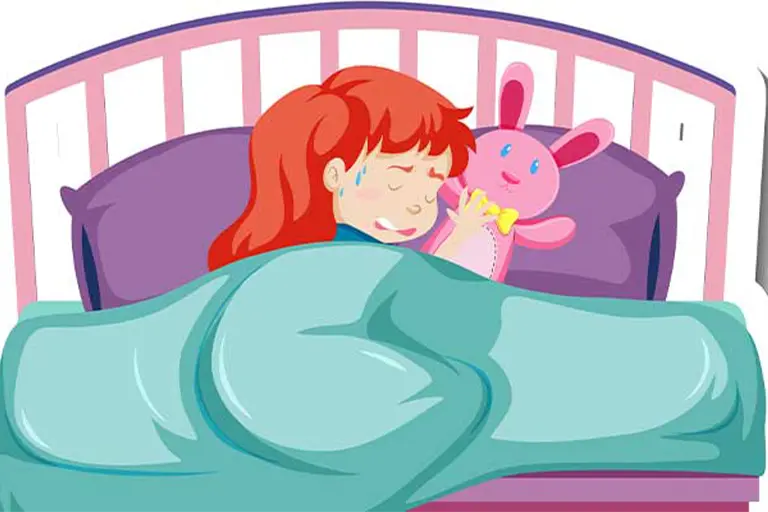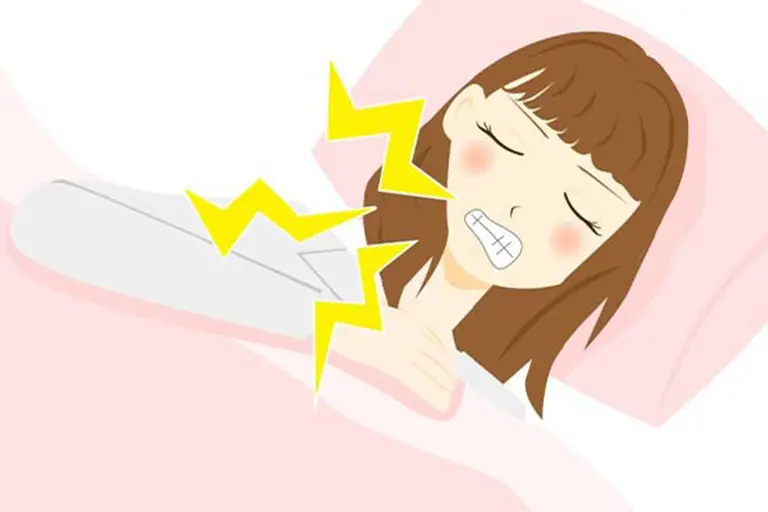Bruxism, or teeth grinding, is the involuntary grinding or clenching of the teeth. It is relatively common in children and they usually outgrow the habit in time. If teeth grinding continues for a prolonged period, it can result in significant abrasion and wear to primary and permanent teeth. Your child’s tooth enamel can wear down and they usually have feeling of pain in teeth, face, and jaw. Read on to know why children grind their teeth at night and what you can do for your kid.
What is bruxism?
Bruxism is the repetitive grinding, gnashing, or clenching of teeth. Children as well as adults may often grind their teeth at night. This type of teeth grinding is referred to as sleep bruxism. There is also awake bruxism, which is often accompanied by clenching teeth and not always grinding.
According to the American Academy of Sleep Medicine (AASM), about 14 to 17 percent of children have bruxism. It can start as early as during baby’ teething, when upper or lower teeth just push through the gums. Studies estimate that 36.8 of pre-schoolers grind their teeth at night 1 or more times per week.
Signs of bruxism in children
Just like adults, kids may not know they grind their teeth, unless siblings or parents notice that. The habit can be persistent enough to damage the child’s teeth and jaw muscles. So, it is important to see a dentist or doctor before a cracked or chipped tooth occurs.
Here are some symptoms to look for:
- Grinding sound when the child is sleeping. It can be loud enough to hear.
- Damaged or worn down tooth enamel
- Headaches
- Sensitive teeth
- Pain in the face, jaw, or ears
- The child complaining of jaw soreness or facial pain after waking up
Causes of teeth grinding in children
Although it isn’t clear what causes bruxism, there are some likely suspects. While teething, misaligned teeth, and permanent teeth growing in cause a child to rub the teeth against the gums and grind their teeth during sleep, other children may do it to relieve their stress or anxiety.
The reasons why your child grinds their teeth can be:
Stress or anxiety
Whether for adults and children, stress and anxiety appear to have a link to sleep bruxism. Feeling of frustration, fear, or restlessness may trigger teeth grinding or clenching.
Although more research is necessary, children who experience traumatic family events, stressful exposure at school, or those who have emotional disorders, such as separation anxiety are more likely to engage in bruxism.

Age
It is possible for children of any age to have sleep bruxism. By teens, the condition may go away and disappear. Depending on the age of the child, the grinding habit can be the result of various factors.
- Infants. Your baby’s first teeth will normally come in at 6 months, with some earlier at 4 months. Throughout the following months, the child will have more and more teeth pushing through the gums. Teeth grinding at this stage can be a reaction to soothe the pain of their teething.
- Toddlers. Most children will have their full set of primary teeth by age 3. Toddlers feel the change in their mouth and bite, which may trigger teeth grinding. More importantly, stress or anxiety from emotional trauma, such as divorce and separation anxiety can be risk factors for sleep bruxism in toddlers.
- School-age children. Between the ages of 6 to 7, baby teeth start to shed one by one and replaced by permanent teeth. This can create sensations in which the child may respond to the new teeth or the bite position by grinding teeth during sleep. Also, school-age children can experience new tensions and daytime stress at school, increasing the likelihood of sleep bruxism.
Underlying mental conditions or sleep-related disorders
Research has found that children who have bruxism have a tendency toward stress, anxiety, and hyperactivity. Therefore, there is an association between behavioral problems like attention-deficit hyperactivity disorder (ADHD), but there is no clear evidence of whether ADHD is causing teeth grinding.
Children with sleep-related disorders such as obstructive sleep apnea (OSA) experience breathing problems during sleep.
Because of the obstruction in the upper jaw, your child keeps the airway open mechanically. This leads to teeth, jaw, and masticatory (chewing) activity and thus sleep bruxism. Mouth breathing and snoring can be common symptoms to look for.
There are certain other health conditions that may be connected to sleep bruxism in children. This can include sleep disorders such as parasomnias or chronic snoring, as well as medical conditions like migraines and neurodevelopmental disorders.
Orthodontic problems
Sometimes, clenching or grinding teeth can be related to misaligned teeth and bite problems.
It is important to see an orthodontist to see if your child requires orthodontics treatment. If your child’s teeth are not properly aligned or there is a bite issue, it prevents normal occlusion of teeth and jaws. Therefore, your child is likely breathing through their mouth, which increases risk of bruxism.
Screen time and diet high in sugar
Studies find that there is a strong relationship between excessive use of electronic devices and high sugar consumption with sleep bruxism in children. These are common behaviors in children which alter the auto transmission of dopamine in your child, increasing the risk of teeth grinding while they sleep.
Second hand smoke
Children who are exposed to cigarette smoking or tobacco use in the home are at higher incidence of tooth grinding. Second hand smoke increases the possibility of obstructive sleep apnea (OSA) in kids. On the other hand, obstructive sleep apnea is usually associated with bruxism. Therefore, exposure to smoke is another risk factor which can explain why children grind or clench teeth.

Treatment for bruxism in children
The treatment of bruxism helps prevent the damage to the child’s teeth and reduces the side effects like pain and headaches. Wearing a mouthguard, reducing stress, and improving sleep quality are the main recommended methods of these treatments.
Mouthguards
If you notice that your child may be grinding their teeth at night, schedule a dental appointment.
Your dentist can fit your child with a mouthguard (also called night guard) or splint to wear at night. These mouthpieces protect your kid’s teeth during sleep. In the case of splints, the jaw is repositioned to guide it into the desired position.
Relieving stress or anxiety
If bruxism in your child is the result of stress, help manage their stress to reduce their teeth grinding.
School-aged children may have some sort of distress about their grades, peers, or people they interact with at school. Talk to the school counselor about your child and make sure you consult with a mental health advisor if there is something that has concerned your kid.
Helping your child sleep better
The recommended night sleep for pre-school age children is 11 to 13 hours. Therefore, it is important that your child gets enough sleep while helping them improve their sleep.
Here are some recommended tips:
- Establish a bedtime routine by preparing your kid to go to sleep at a specific hour.
- Get them to brush their teeth.
- Don’t allow your child to eat or drink sugary, or caffeinated foods and drinks at bedtime. Chocolate, coffee, or foods and drinks with added sugar should be avoided.
- Limit the use of electronic devices (computers, cellphones) and avoid TV programs that are not right for their age.
- Try to make the sleeping hours interactive by reading stories and cut down on watching TV.
- Set a dark, quiet room for your child to sleep.
